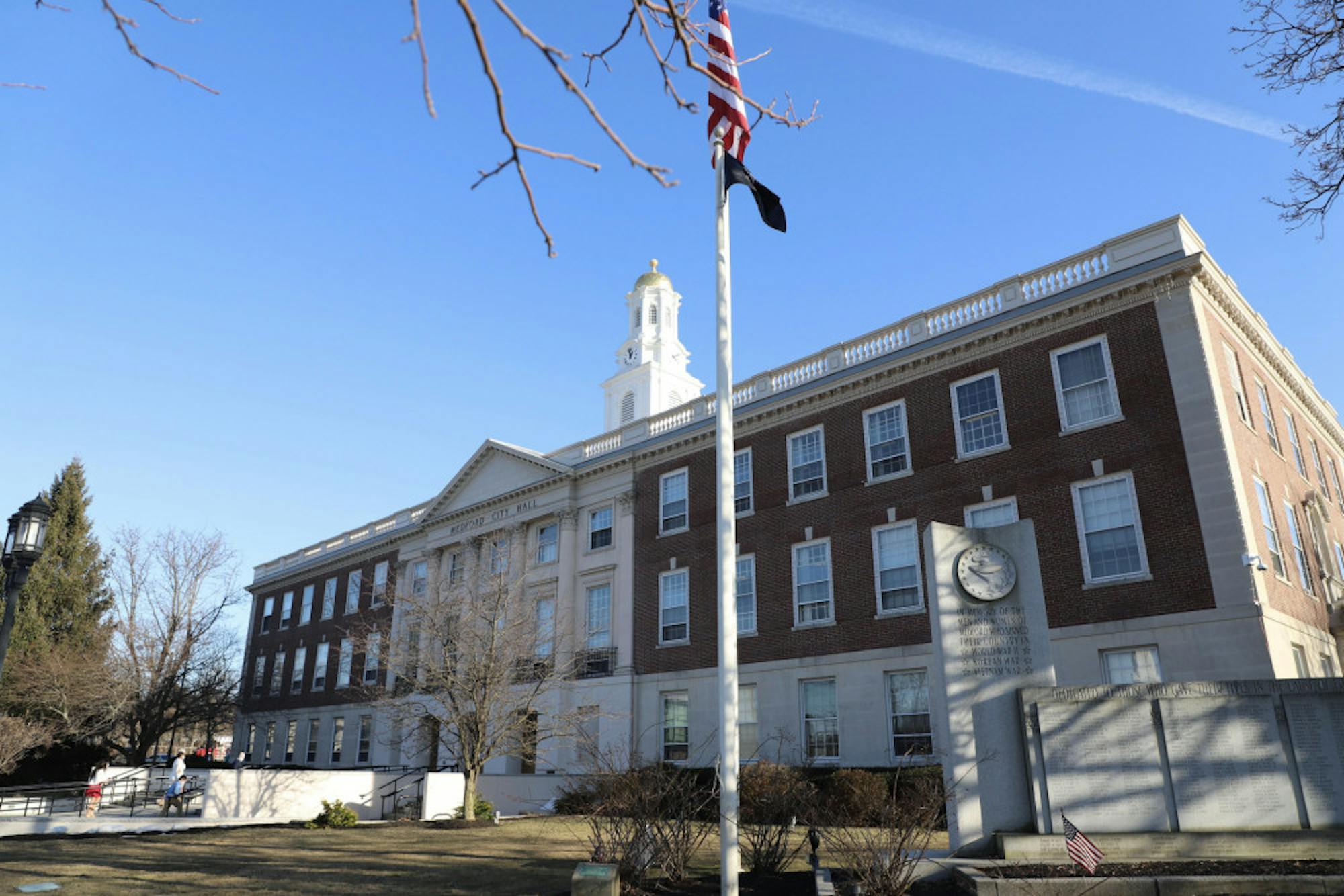Medford Mayor Breanna Lungo-Koehn released a proposed Capital Improvement Plan on Feb. 24. The CIP provides a blueprint for Medford’s capital expenditures, with a proposed $107.6 million to be invested into the community over fiscal years 2021–26.
In a letter addressing the members of the Medford community accompanying the CIP, Lungo-Koehn explained what the plan is and what it will do.
“The CIP is not a budget or wish list – it is a strategic plan to guide how, when, and why we will undertake projects, track general maintenance, and advise how we will move forward together," Lungo-Koehn wrote in the letter.
The money will be invested into 123 different projects. The projects include investments in roadway quality, parks and recreational spaces, vehicles and equipment for staff, water and sewer infrastructure and capital projects. Of the $107.6 million, investments will be made from specific funds. The General Fund has $79.5 million and the Enterprise Fund $9.2 million, and more than $18.7 million will come from grants and other non-tax levy sources, according to the plan.
According to Jackie Piques, director of communications for the City of Medford, the plan was constructed with the Edward J. Collins Jr. Center for Public Management at the University of Massachusetts Boston.Medford applied for and received a grant from the Commonwealth of Massachusetts as a part of the Community Compact Program.
Sarah Concannon, public services manager for the Collins Center, explained the importance of plans like this in a city’s financial management.
“The City of Medford is responsible for a wide variety of capital assets from police cruisers and fire engines to School buildings and City parks," Concannon wrote in an email to the Daily. "These assets have to be maintained and periodically replaced so that City staff can do their jobs efficiently and effectively and for the use and enjoyment by the public. Proper planning allows the City to fulfill this responsibility in an affordable and strategic way."
Piques elaborated on this.
“Our goal is simple – create and maintain the best infrastructure possible to deliver high-quality services to the people of Medford," Piques wrote in an email to the Daily. "By having a multi-year plan for the first time, we are able to have a roadmap to get there over [time]."
Piques also explained how projects in the plan were decided.
“The CIP team, led by the Mayor, worked with every department across city and school operations to identify projects needed," she said. “Of course a greater number of projects were identified as [needed] than could be included within the plan – inclusion within the plan itself was based on priority and financial feasibility.”
According to Concannon, the Collins Center helped the city leadership create a list of capital needs with priorities, based on a dozen criteria such as economic and environmental benefits and impact on service to residents and businesses.
“The CIP put forward by the Mayor addresses many of the needs of the community, there is nothing in the CIP that is not long overdue, similar to what other [mayors] have put forward in the past," Medford City Council President Richard Caraviello wrote in an email to the Daily.
Though the City Council was not involved in the development of the CIP, per Adam Knight, vice president of the Medford City Council, it is the body responsible for approving the spending of the funds.
Knight said he appreciates the work of the Collins Center and the effort that has been put into the plan thus far, but he noted there were some omissions that he would have liked to see addressed.
“I believe we need to make more of a commitment to the resurfacing of our roadways, and revitalization of Medford Square and the Mystic Avenue Corridor,” Knight wrote in an email to the Daily. “I noticed there was no mention of reuse/restoration of the former Hegna Center property. I would also like a better idea of what the future plans are for the Fire Headquarters.”
Piques said that the next phase of the plan will be incorporating it into the fiscal year 2022 budget, among other processes.
"The CIP is designed to be a living document – as projects and priorities are finished and changed, the plan will be updated each year," Piques said.
Concannon echoed this.
“Capital planning is an annual process, and it should be expected that the later years of the plan could change," Concannon said. "Now, after working with the Collins Center, the City has the process and tools in place that it needs to manage and maintain the CIP on an annual basis.”
The next step for the City Council, according to Caraviello, is to meet with the administration to discuss the timeline for their projects and the sources of funding for those projects.
"The Council may have other priorities that we feel need to be addressed as part of the CIP, but everything is open for discussion at this point," Caraviello said. "Again we look forward to meeting with the Mayor in the near future."
Concannon praised Medford for undertaking this plan and these projects.
“The City of Medford and Mayor Lungo-Koehn should be commended for undertaking this project," Concannon said. "It was a lot of time and effort during a year when City and School staff were already overwhelmed with work to address the pandemic."






